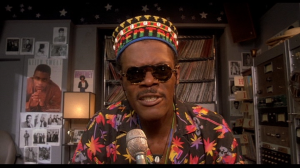
Clearly, this man should never be allowed to get near a university.
It is now possible to have a really bad, no good, terrible day that the whole world can witness and that you can never take back. I tell my students that I’m eternally grateful that I was able to be young prior to the proliferation of digital cameras and the development of the world wide web because my youthful indiscretions aren’t preserved for posterity. Even beyond the hormone-fuelled irrationality of youth, I’ve surely been a jerk and fired off inappropriate emails (or ruined more than my share of dinner conversations) even after receiving my PhD.1 Digital communication platforms not only enable us to give in to snap judgements and jerkish responses, some reward and encourage it. It is really easy to be flip in 140 characters, and it is extraordinarily difficult to be deep or insightful within the constraints of Twitter. Whatever we make of the Steven Salaita case case itself, it seems to me that this issue is something we, the scholarly community, need to think through and come to some sort of consensus on because it is only going to loom larger as younger scholars who grew up with social media enter academia.
I want to suggest that there are two problems facing academia: first, the regulative ideal of scholarly behavior arose at a time when it was substantially more difficult to engage in the sort of bad behavior that various information technology platforms enable and enourage. Second, there is a culture clash between scholarly endeavours and information technology practices; whereas the former is (or aspires to be) permanent, considered, careful, and thoughtful, the latter includes uses that are way more ephemeral, instantaneous, off-the-cuff, and “uncareful” (precisely because it can be corrected or updated for little to no cost).
Continue reading

